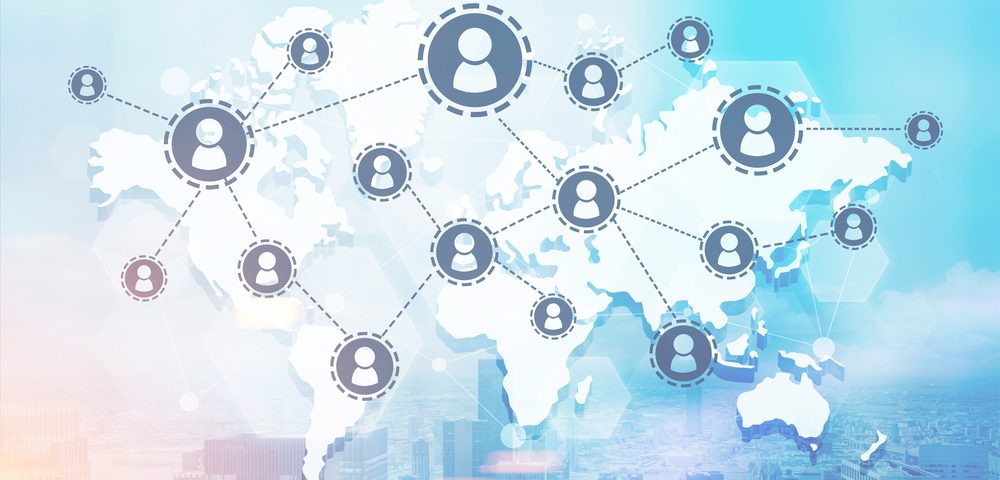The Joys and Perils of Turning to Online Groups for Support
Written by |

When I was diagnosed with ankylosing spondylitis (AS), one of the first things I did was join numerous AS groups on Facebook. We’re talking groups for women with AS, groups for AS-related diets, groups for fitness with AS, and groups for local AS meetups. Then there was the group that rolled about 28,000 members deep. That’s a lot of people with AS.
At first, I checked every single notification. The pings on my Facebook notification screen were an alarm I had to check. Newly diagnosed, I felt completely and utterly alone in real life. I didn’t know a single person with the condition, and so the Facebook groups felt like my lifeline to … well, myself.
Through the groups, I met a handful of people I now talk to regularly. Diana, whom I met first, offered me not only helpful AS information but also immeasurable emotional support while I cycled through intense denial, exacerbation, and anger. I can’t believe how generous she was and is.
I learned a lot about alternative healing modalities. One thing you get a lot of when you have a chronic illness is unsolicited and totally unresearched advice: “Hey, try holding a rose quartz for spinal pain.” “Have you done this DNA activation meditation?” Though well-intentioned, it’s also reductive and insulting.
In the Facebook groups, however, it was more helpful to hear about relief strategies from folks who actually knew the pain I was in. I also asked questions about taking my first Humira (adalimumab) injections and got limitless support and encouragement. So, there are a lot of plus sides there.
However — and I can’t stress this however enough — I started to lose my grip when reading through these groups every single day. I’d see that this person was immobile, and that person had drug-induced lupus, and this person lost her mother to AS, and that person was going through a divorce because AS has destroyed his intimacy and connection. I felt horrible for them, and, narcissistically, I reflected that back at myself. It was hard not to.
I mean, this destroyed me. I obsessed about my future — how AS would destroy my body, how I’d lose everything. But after about five months of doing this to myself, I turned off notifications. For one, I realized that every single person experiences AS differently. We all eat differently, work out differently, have different personal goals, have different genetics, and we are all at different stages of our disease. That was about the time I left the denial phase of grief and started accepting my reality.
Wasting my time thinking about could-be’s and might-be’s would mean not living right now. And living right now is key.
My advice: Take the support groups with a grain of salt; explore with an open mind and know that not everyone is going to experience the same thing. We are all different.
***
Note: Ankylosing Spondylitis News is strictly a news and information website about the disease. It does not provide medical advice, diagnosis, or treatment. This content is not intended to be a substitute for professional medical advice, diagnosis, or treatment. Always seek the advice of your physician or other qualified health provider with any questions you may have regarding a medical condition. Never disregard professional medical advice or delay in seeking it because of something you have read on this website. The opinions expressed in this column are not those of Ankylosing Spondylitis News, or its parent company, Bionews Services, and are intended to spark discussion about issues pertaining to ankylosing spondylitis.






Angela D.
Wow, this is so me right now. I am obsessed with reading. Thank you for this insight!
Anita Abbott
This is me as well. In trying to make all the right decisions about meds, exercise and diet I am constantly researching, and at times finding conflicting information on things like inflammatory vs anti-inflammatory foods, etc. I need to talk these things through with someone who is in similar shoes. I would love to get into a good support group.
Thank you for this article!
William Miller
Wonderful column! I needed this advice today. Thank you Lisa
Merry Elston
I have had low back pain since my early 30’s, I am now 67. I have had bothe joints in my big toes replaced years ago. I have had at least 30 RA’s done- all negative of course. During the winter my pediatrist did a HlA-B27, which came back positive
Julie McDonnell
My husband is suffering very badly at the moment with his neck. He has been injecting cimzia for nearly 3 years now this helps alot as he has had no spasms in his spine for most of this time but lately he has been having spasms in is neck. I feel so sorry for him and I'm constantly worrying about his physical and mental well being. Any tips advise, support would be greatly appreciated.